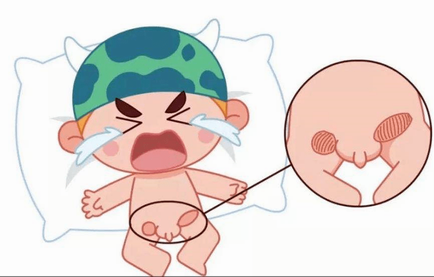- +86 196 0217 6777
- [email protected]
- Monday - Sunday 9.00 - 18.00
Dealing with a baby hernia requires careful management and medical attention. Here are some steps to follow:

1.Consult a Pediatrician: If you suspect your baby has a hernia or notice any symptoms, it's important to consult a pediatrician. They will perform a physical examination and may order additional tests, such as an ultrasound, to confirm the diagnosis.
2.Monitor the Hernia: In some cases, pediatric hernias can resolve on their own without intervention. Your pediatrician will guide you on how to monitor the hernia and observe for any changes or complications. They will provide instructions on what to watch for and when to seek medical attention.
3.Gentle Handling: When handling your baby, be gentle and avoid putting excessive pressure on the hernia site. Support their abdomen with your hand or a soft cloth during activities such as diaper changes or lifting.
4.Observe for Incarceration: In some instances, a hernia can become trapped or incarcerated, leading to complications. Watch for signs such as sudden or severe pain, redness, swelling, vomiting, or difficulty passing stool. If you notice any of these symptoms, seek immediate medical attention.
5.Consider Hernia Repair Surgery: In many cases, pediatric hernias require surgical intervention to prevent complications and discomfort. The decision to proceed with surgery will be made by your pediatrician and a pediatric surgeon. The surgery is typically performed on an outpatient basis, and the recovery time is usually quick.
6.Follow Post-Surgery Instructions: If your baby undergoes hernia repair surgery, it's crucial to follow the post-operative instructions provided by the medical team. This may include keeping the surgical site clean and dry, administering any prescribed medications, and monitoring for any signs of infection or complications.
7.Provide Comfort and Support: During the recovery period, provide your baby with comfort and support. Offer gentle cuddles, ensure they are well-rested, and provide pain relief measures as recommended by the pediatrician.
Remember, each case of baby hernia is unique, and the treatment approach may vary based on individual circumstances. It's essential to follow the guidance of your pediatrician and seek their advice for the best course of action for your baby.